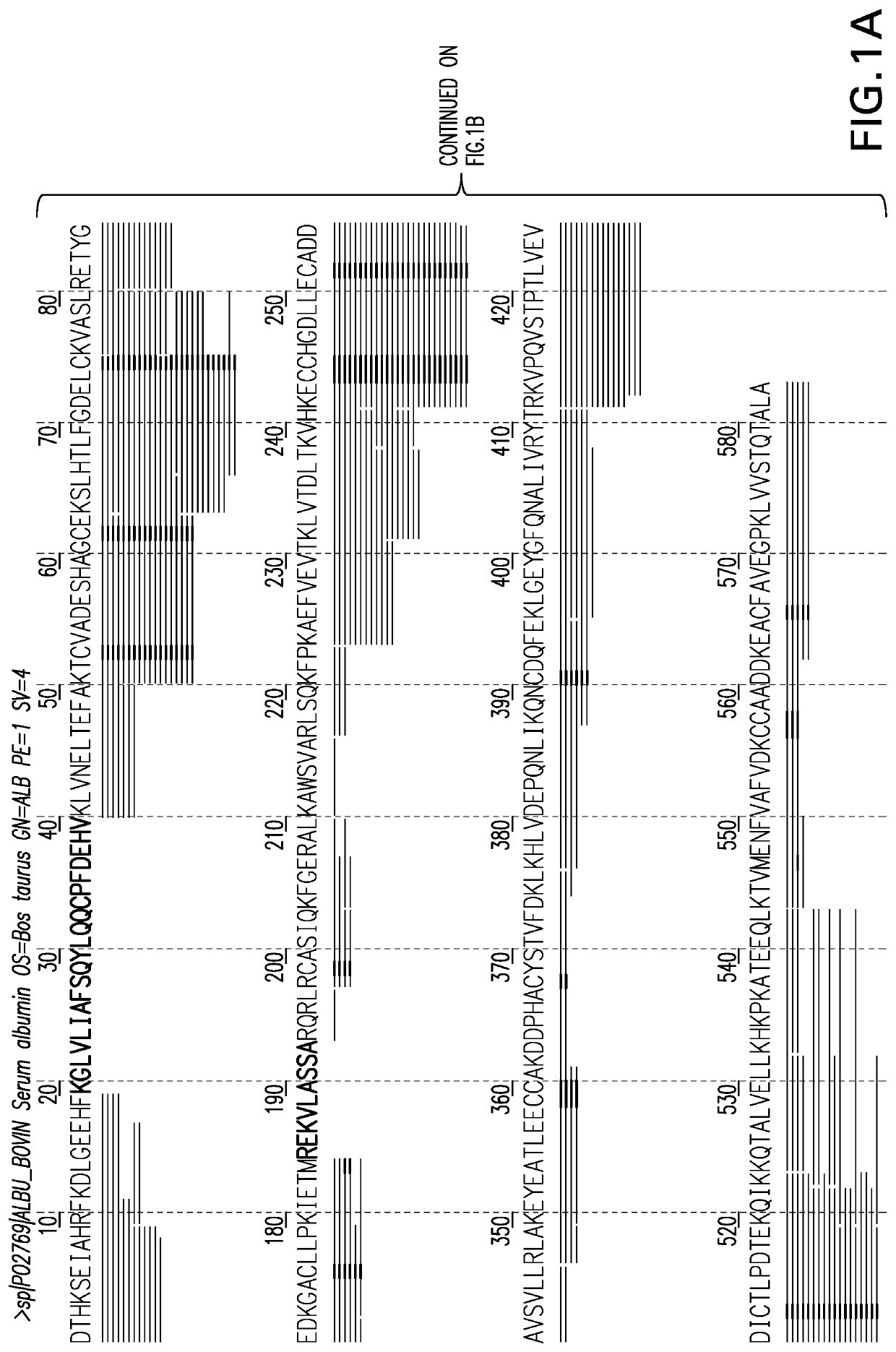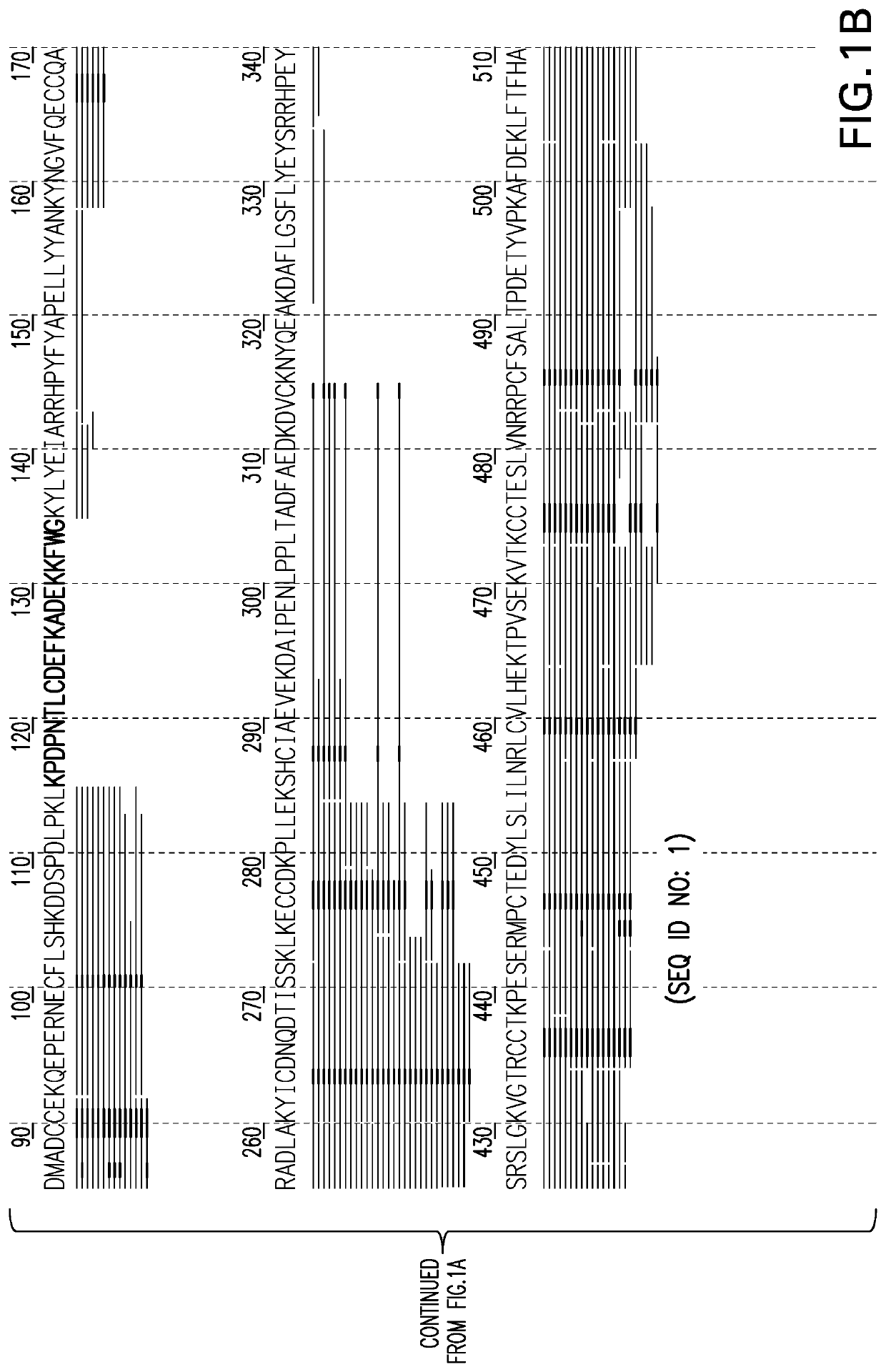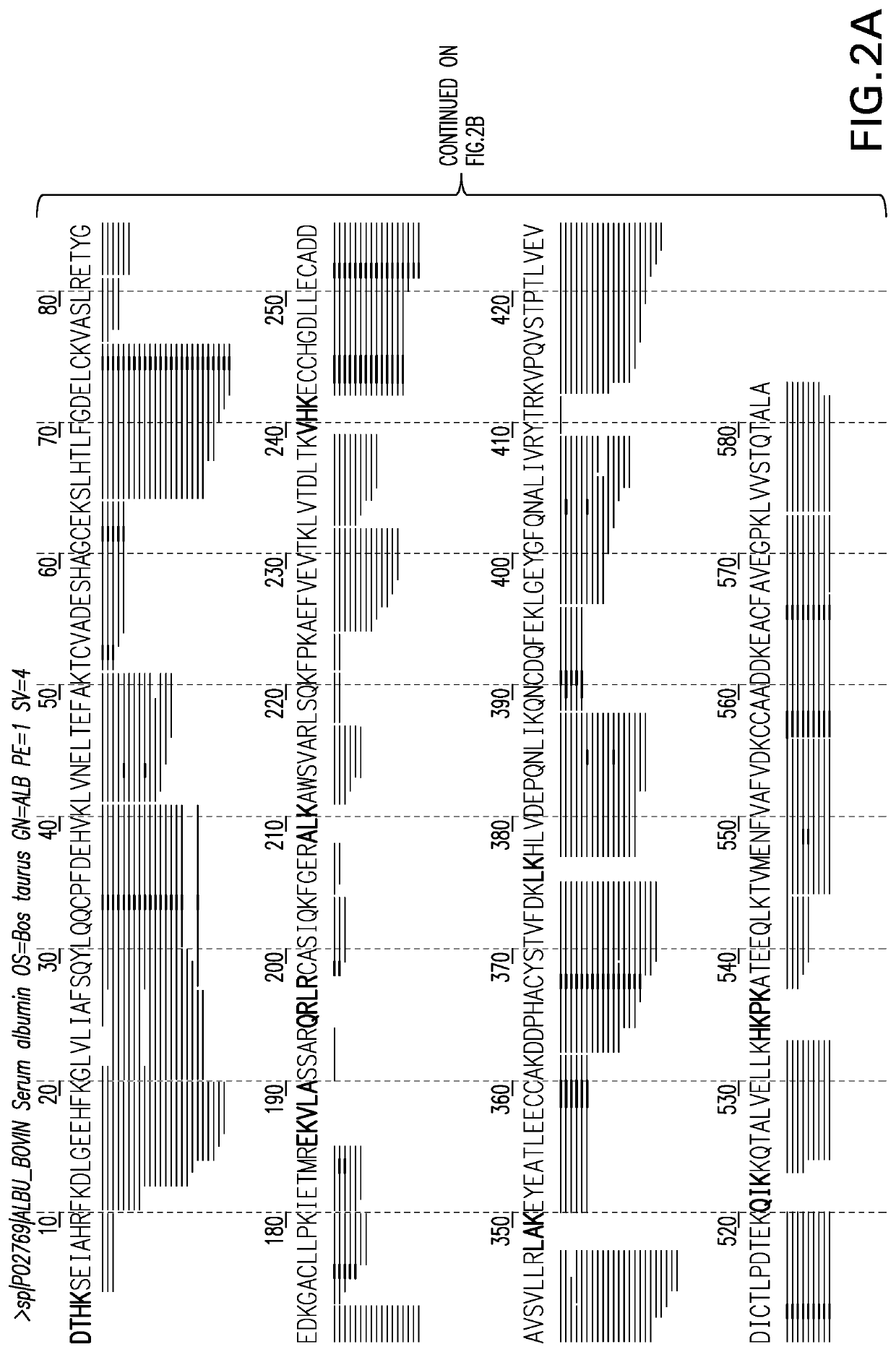Methods for de novo protein sequencing
a protein and sequence technology, applied in the field of biopharmaceuticals, can solve the problems of relatively little progress towards the development of “next generation” platforms, low methods, and incremental advances in mass spectrometer performan
- Summary
- Abstract
- Description
- Claims
- Application Information
AI Technical Summary
Benefits of technology
Problems solved by technology
Method used
Image
Examples
example
[0084]The following example is put forth so as to provide those of ordinary skill in the art with a complete disclosure and description of how to make and use the methods of the invention, and is not intended to limit the scope of what the inventors regard as their invention. Efforts have been made to ensure accuracy with respect to numbers used (e.g., amounts, temperature, etc.) but some experimental errors and deviations should be accounted for. Unless indicated otherwise, parts are parts by weight, molecular weight is average molecular weight unless indicated, temperature is in degrees Centigrade, room temperature is about 25° C., and pressure is at or near atmospheric.
[0085]Two samples containing Bovine Serum Albumin (BSA) were subjected to digestion by Trypsin and Tryp-N, (a thermophilic metalloprotease with N-terminal specificity for arginine and lysine developed at Cold Spring Harbor laboratory and commercially available from Protifi, LLC) respectfully. The resulting peptide ...
PUM
 Login to View More
Login to View More Abstract
Description
Claims
Application Information
 Login to View More
Login to View More - R&D
- Intellectual Property
- Life Sciences
- Materials
- Tech Scout
- Unparalleled Data Quality
- Higher Quality Content
- 60% Fewer Hallucinations
Browse by: Latest US Patents, China's latest patents, Technical Efficacy Thesaurus, Application Domain, Technology Topic, Popular Technical Reports.
© 2025 PatSnap. All rights reserved.Legal|Privacy policy|Modern Slavery Act Transparency Statement|Sitemap|About US| Contact US: help@patsnap.com



